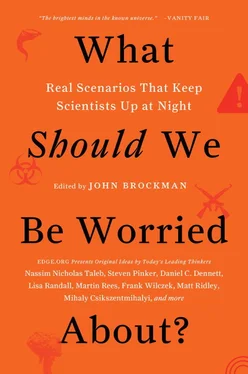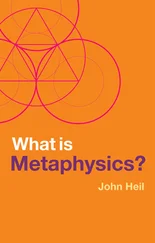So we have cause for concern, no question about it. That said, when it comes to water, “worry” (particularly that of a catastrophic nature) is a singularly unhelpful sentiment. Water systems are not simply a feature of our landscape that needs to be protected from human activities. They are a foundational element of our societies and a basic infrastructure for our economies. That they are subject to so many competing and at times incompatible interests is an inevitable consequence of their critical importance in virtually everything we do.
Reams have been devoted to rousing alarms about the global water crisis, but the barrier to effective action is not one of conviction but of complexity. It is frightening that—outside of a restricted circle of practitioners—we have been unable to develop a fact-based, practical way of debating water issues in public. We don’t need heated public debates on the likelihood of “water wars,” or on the popular (mistaken) idea that water is an exhaustible resource. But we do need debates on the practical, consequential choices we have.
How should we think about the tradeoffs between food production and water scarcity? What options do we have on hydropower, and what are their costs? What does an economy consistent with the available resources look like? Precisely because managing water for multiple objectives is complex and solutions are always contextual, we must make sure that people know what questions to ask and understand the tradeoffs they will have to live with.
For many countries, ensuring enough water to sustainably satisfy the needs of a growing population and economy will be a complicated and expensive balancing act. Globally, $600 billion is spent each year on managing water, a sum comparable to what is spent on producing natural gas. And this does not include expenditure in other sectors—from agriculture to manufacturing—that influences the intensity of water use.
Historically, governments have financed most of those expenditures and negotiated the tradeoffs between competing objectives, as part of their ordinary administrative process. But today few public institutions have access to the necessary funds to pay for such investments, and many struggle to access affordable finance. Even when the money is there, the question of managing water resources is no longer just administrative. As we stretch what we can do with our limited resources, choices across the economy become increasingly interconnected: Industrial policy, energy, and agricultural choices become water choices, and the environmental outcomes we seek for our rivers have implications for jobs and economic development.
These are profoundly political and value-laden issues that deserve informed public debate. People must be able to debate about the tradeoffs they’re asked to live with, just as they do—or should do—with other collective strategic issues, from energy to health care. If they don’t, our economies, societies, and environment will inevitably be the poorer for it.
CHILDREN OF NEWTON AND MODERNITY
STUART A. KAUFFMAN
Founding director, Institute for Biocomplexity & Informatics, University of Calgary; author, Reinventing the Sacred: A New View of Science, Reason, and Religion
The great early sociologist Max Weber wrote, “With Newton we became disenchanted and entered Modernity.” I believe that Weber was right: We remain disenchanted and are inarticulately lost in Modernity. Many of us seem to sense the end of something—perhaps a futile meaninglessness in our Modernity.
Was Weber right? And how is it based on science? Yes, Weber was right, and our disenchantment remains because, at least in part, we remain Newton’s children.
Before Newton, in the previous two centuries in Europe, we had the black and white magi. Kepler was the last of the white magi, hoping the Platonic solids would state the orbits of the planets—only to surpass that, and Aristotle’s certainty that orbits were perfect (thus circles), when he discovered that the planetary orbits were ellipses.
But the black magi sought occult knowledge, to stand Nature on her head and wrest their due, a misguided use of God’s promise to Adam in Genesis. In those centuries, we lived with magic and were enchanted.
Newton changed everything with his three laws of motion, universal gravitation, and his invention of differential and integral calculus. Consider seven billiard balls rolling on a billiard table. What will they do? Newton taught us to measure initial conditions of positions and momenta of the balls, the boundary conditions of the table, then write the forces between the balls (and walls) using differential-equation forms of his laws of motion. Then, said Newton, we were to integrate his equations of motion to obtain the forever trajectories of the balls—ignoring friction for the moment. But integration is deduction of the consequences of the differential equations, and deduction is logical entailment . So Newton, in what I’ll call the Newtonian Paradigm, gave us both classical physics and an entirely entailed becoming of physical systems.
With the Marquis de Laplace, a bit more than a century later, we obtain the view that were all the positions and momenta of all the particles in the universe known, a giant computer in the sky, the Laplacian Demon, could, using Newton’s laws, calculate the entire entailed future and past of the universe. This is the birth of modern reductionism in physics, Weinberg’s Dream of a Final Theory that will entail all that becomes in the universe.
Quantum mechanics does not change this fundamental view. In place of deterministic, entailed trajectories, we have, from the Schrödinger equation, the entailed trajectory of a probability distribution, obtained as the squares of the amplitudes of the Schrödinger linear wave equation. In modern physics—general relativity and quantum mechanics—all that becomes in the universe is entailed. Nothing novel can arise. And, profoundly, we remain disenchanted. There can be no natural magic.
From Newton we get the Enlightenment, our Age of Reason, thence the Industrial Revolution, and then the rise of Modernity. We remain disenchanted.
Beyond the Newtonian Paradigm
I claim that—at least for the living, evolving world; the evolving biosphere, human economy, legal systems, culture, and history—no laws at all entail the becoming of these worlds into their forever newly emerging but un-pre-statable “adjacent possible opportunities,” which, in evolution, are not achieved by the “action” of natural selection. Nor in human life are these adjacent possible opportunities typically “achieved” by human intent.
Because these evolutionary processes typically cannot be pre-stated, the very phase space of biological, economic, cultural, and legal evolution keeps changing in un-pre-statable ways. In physics, we can always pre-state the phase space, hence can write laws of motion, hence can integrate them to obtain the entailed becoming of the physical system. But because in the evolution of life, and human life, the very phase space changes in un-pre-statable ways, we can write no laws of motion. Nor can we noncircularly pre-state the boundary conditions on this evolution, so we have neither laws of motion nor their boundary conditions and so cannot integrate the entailed trajectories of the laws of motion (which we do not have anyway).
To show why we cannot pre-state the evolution of the biosphere, I start in a strange place: Please list for me all the uses of a screwdriver. Well, to screw in a screw, open a can of paint, wedge a door open (or shut), stab an assailant, tie to a stick to make a fish spear, rent the spear to locals for 5 percent of the catch….
Here seem to be the new and essential issues: (1) The uses of a screw driver are indefinite in number; (2) these uses, unlike the integers, are in no way naturally orderable.
Читать дальше












